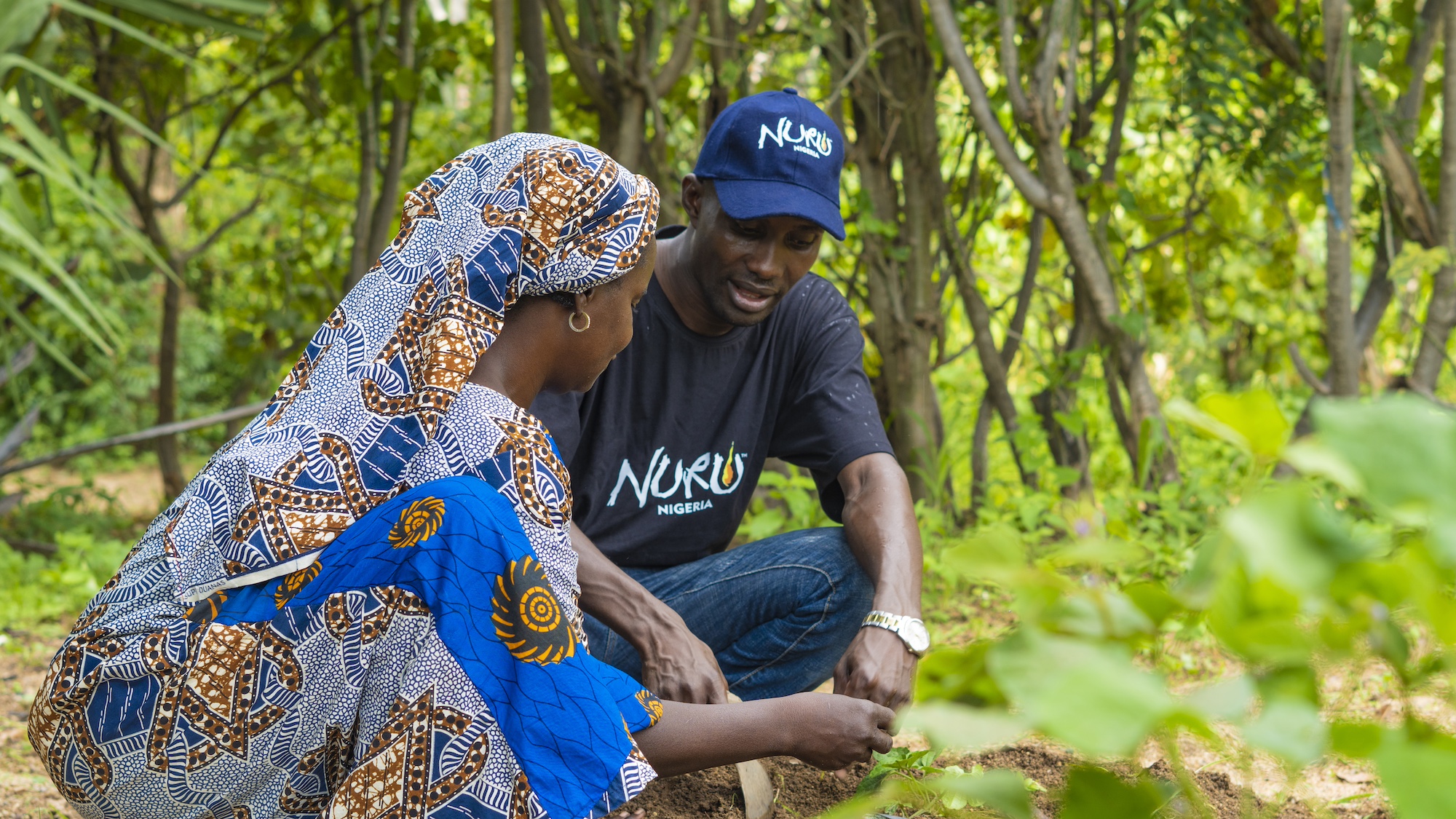Nuru Nigeria has worked in northeast Nigeria since 2018, building community resilience through farmer-owned and farmer-led agribusinesses. Nuru Nigeria recently concluded its five-year Resilience Capacities Study to evaluate how well it is equipping farmers to build their resilience, as resilience is a critical tool for overcoming poverty.
This study, completed in partnership with the Ray Marshall Center at the University of Texas, Austin, found that Nuru Nigeria significantly and positively contributes to farmer resilience. In comparison to their peers, Nuru Nigeria-supported farmers are better equipped to face future unexpected challenges, like weather events, conflict, and financial shocks.
Resilience Study Context: Northeast Nigeria
To properly convey the significance of these findings, it’s important to contextualize northeast Nigeria, where nearly a decade ago, the world was shocked by the abduction of nearly 300 schoolgirls in Chibok by the terrorist group Boko Haram. The international outcry, symbolized by the #BringBackOurGirls campaign, highlighted the broader crisis facing the entire northeast region of Nigeria.
Nuru Nigeria Managing Director Amy Gaman was training to be a medical doctor at the time of the attack and recalls the horrific experience. Communities were torn apart, infrastructure destroyed, and livelihoods shattered. In an area previously recognized as safe and welcoming to outsiders, neighbors quickly became fearful of one another, local celebrations ceased, and a sense of hopelessness was palpable.
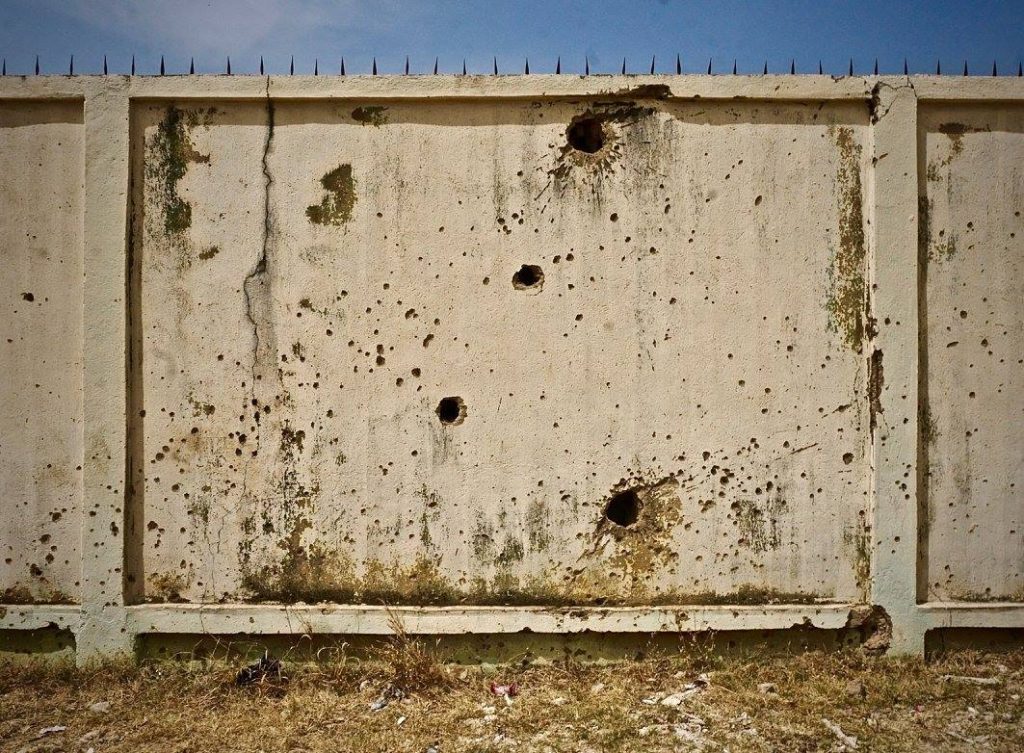
Destroyed government building in northeast Nigeria, 2016
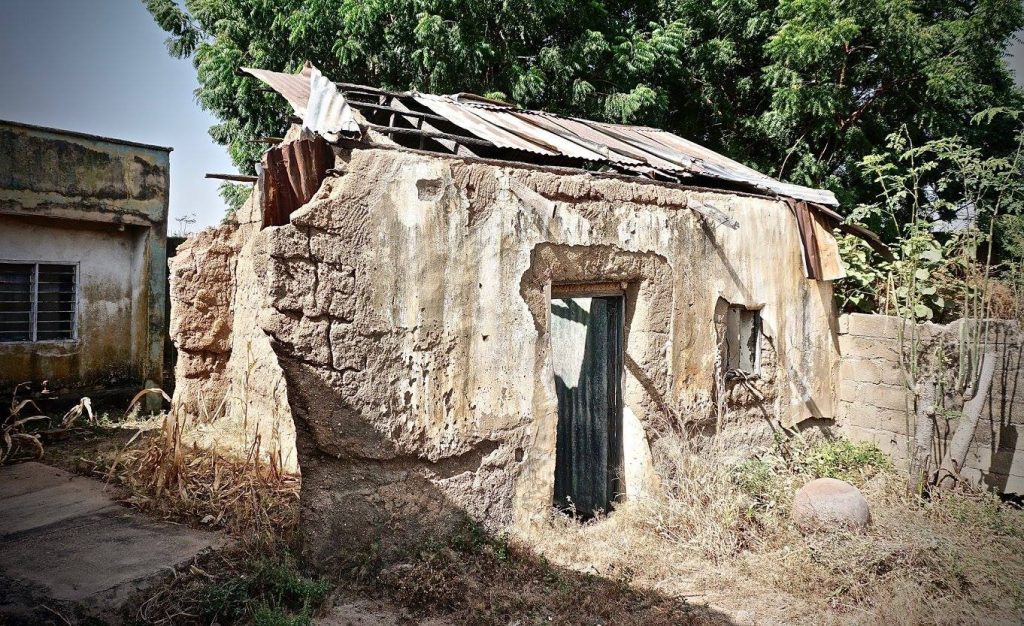
Looted and destroyed building in northeast Nigeria, 2016
Smallholder farmers were among the hardest hit, as they form the backbone of the region’s economy and fuel local food systems. In addition to being in a conflict-impacted area, these farmers were also facing ongoing climate-related shocks and poverty amid rising inflation. With such uncertainty, life for the average smallholder farmer during this last decade in northeast Nigeria has been challenging. These farmers, who typically manage small plots of land to feed their families and earn a modest income, have contended with the ongoing risks brought on by local instabilities, including fears of violence, displacement, and loss of crops and livestock.
The Role of Nuru Nigeria in Building Resilience
Nuru works in places disproportionately impacted by growing instabilities. When Nuru Nigeria launched in the northeast region, no other local organization within the Nuru Collective had ever worked in an area so heavily impacted by conflict. Throughout the development sector and around the globe, there was a growing skepticism that the northeast region was prepared to begin the arduous work of rebuilding. Nuru Nigeria Managing Director Amy Gaman saw a reason to hope. Amy and her team took on the challenge of supporting these fragile communities in building back both their economies and their identities. As Amy Gaman shares her story in leading this effort, her relentless determination to equip smallholder farmers to take back their identity is a clear driving force.
Nuru Nigeria was founded to support smallholder farmers to overcome poverty and adapt to the challenges facing their livelihoods. By equipping farmers to thrive through farmer-owned agribusinesses, Nuru Nigeria supports them to build their resilience. Resilience-building is important, as Nuru Nigeria wants to see farmers lives’ improved not only during this growing season or even this year, but for generations to come. Despite the challenges, Nuru-supported farmers have shown remarkable resilience, rebuilding their lives and communities to foster social cohesion in the region. By putting women first, Nuru Nigeria has supported over 32,000 farmers to diversify their livelihoods and build professional and sustainable agribusinesses that increase resilience for each smallholder farmer and their family.
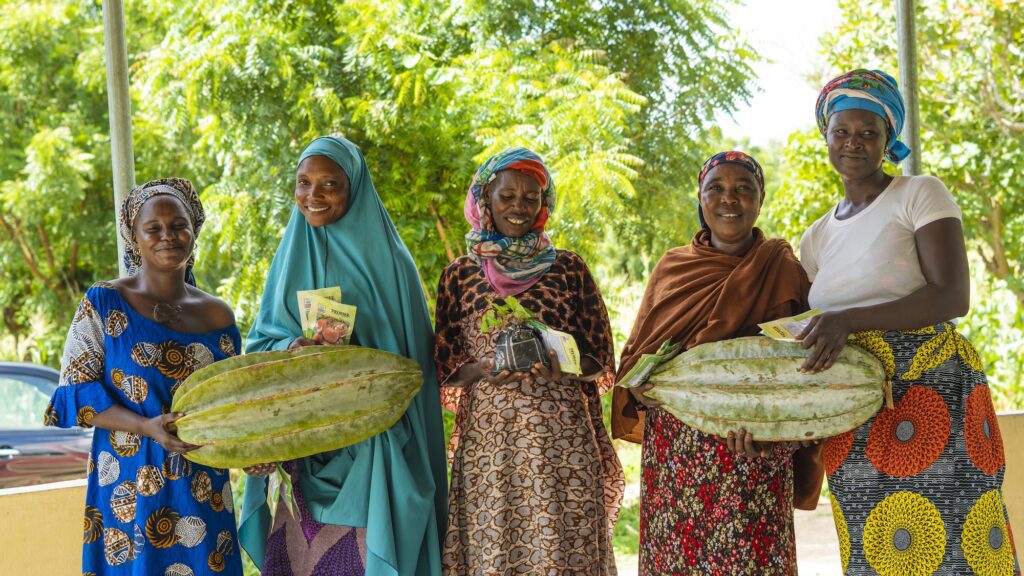
Women farmers with their harvests, Nuru Nigeria, 2023
Understanding and Evaluating Resilience
How do we define resilience, and how do we measure it? Resilience, in this context, can be understood through three key lenses: transformative, adaptive, and absorptive. Transformative resilience involves fundamental changes in the way communities operate, often leading to entirely new ways of thinking and acting to deal with large-scale crises. Adaptive resilience is about making adjustments and modifications in response to changing circumstances, such as planting drought-tolerant crops to adapt to more erratic rainfall or adjusting household nutrition to available food and resources. Absorptive resilience, meanwhile, refers to the capacity to absorb shocks and stresses without significant long-term damage or change to the overall structure and functioning of the community.
This framework for understanding resilience was created by Tango International and adopted by Nuru for a five-year randomized controlled trial (RCT) in northeast Nigeria. This study evaluated the extent to which Nuru Nigeria influenced positive change in individual farmer resilience. In partnership with the Ray Marshall Center at the University of Texas, Austin, Nuru Nigeria found significant positive improvements in both adaptive and absorptive resilience capacities for Nuru Nigeria-supported smallholder farmers (in comparison to the control groups). In short, this means that Nuru Nigeria programs have positively impacted both individual and community resilience over the first five years’ of program implementation.
What Does Resilience Look Like?
Neighbors are working together to grow their agribusinesses. And these agribusinesses are supporting local food systems and the local economy. Celebrations have returned, and hope is tangible throughout the region. There will be uncertain days ahead, but farmers have the tools, knowledge, and resources to overcome those shocks together. For smallholder farmers in northeast Nigeria, positive improvements in resilience are crucial for building back after conflict, adapting to climate challenges like insufficient rainfall, and overcoming poverty.
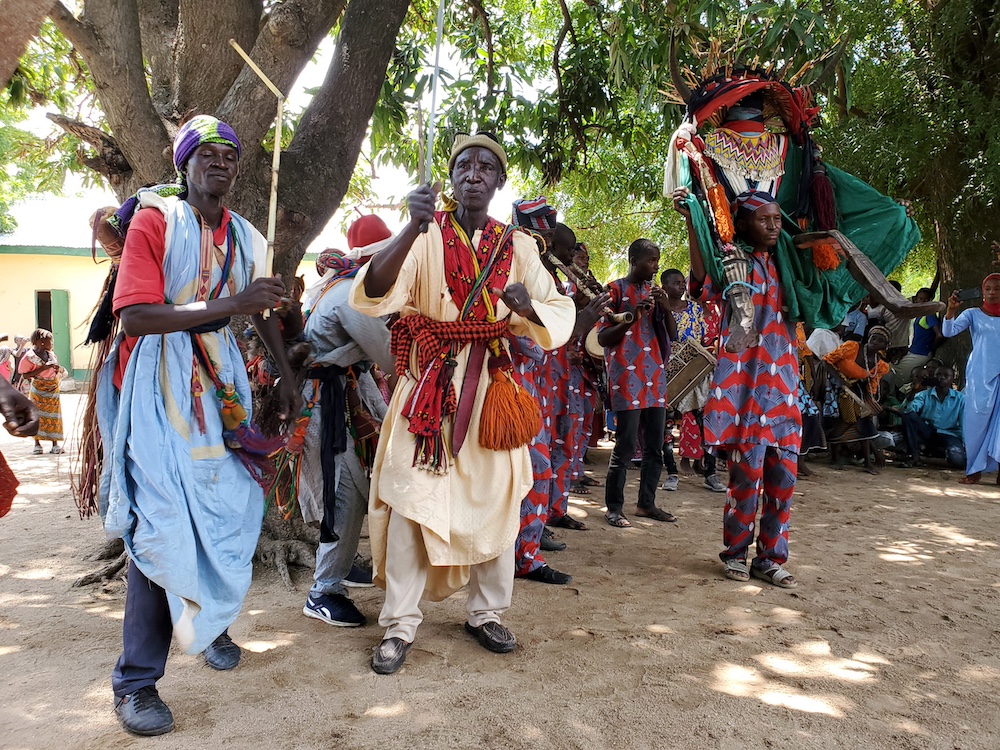
Traditional celebrations return in northeast Nigeria, 2021
Absorptive resilience helps farmers endure droughts by utilizing savings, growing alternative crops, or relying on social safety nets. Adaptive resilience involves proactive changes, such as using drought-tolerant seeds, water-saving irrigation techniques, and using weather prediction technology like ignitia. Transformative resilience entails deeper changes, like diversifying income sources, investing in education, or farming agribusinesses becoming more professional. Transformative resilience often involves lengthy institutional and societal change; therefore, it is unlikely to see this impact during a short-term study.
A Story of Resilience: Martha
Nuru works in remote regions that often have limited infrastructure. However, when a region is impacted by conflict, as in northeast Nigeria, those resources quickly become scarcer or nonexistent altogether. The resulting lack of resources means impassable roads, no access to banks, and the absence of local markets for purchasing food.
Martha, a woman farmer in northeast Nigeria, struggled to access fresh vegetables, as there was no local vegetable market nearby. In an effort to support her family’s nutritional needs, Martha paid for expensive transportation to neighboring areas to buy vegetables. When Nuru Nigeria began working in Martha’s area, it started with women farmers like her, equipping them with the necessary resources to plant vegetable gardens (permagardens) in their own backyards.
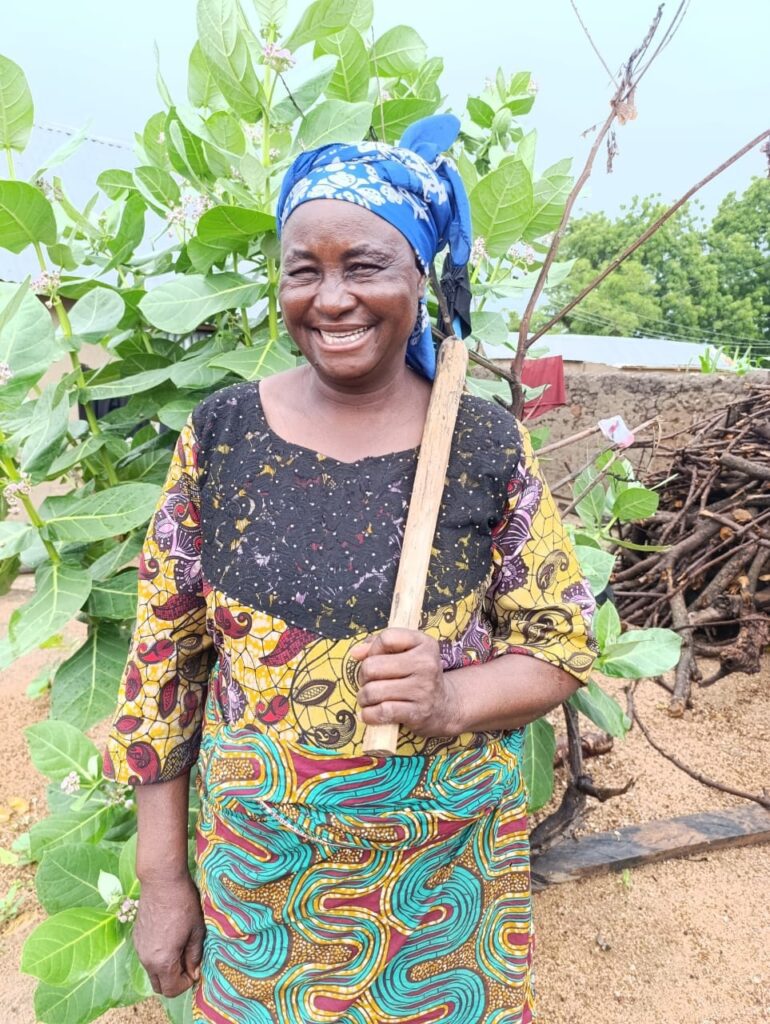
Nuru Nigeria Woman Farmer, Martha, 2023
Equipped with proper training and vegetables seeds, Martha turned her empty backyard into a flourishing vegetable garden with tomatoes, cucumbers, okra, and fluted pumpkins. As her garden thrived, Martha gave away produce to neighboring women farmers and sold the excess for additional income. Martha and other women farmers have been educated on seed-saving techniques, too, equipping them to plant year after year without the expense of purchasing additional seeds. Today, Martha no longer spends money to travel and purchase vegetables at the market, but instead, she grows what she needs, earns an income from selling the excess, and has improved relationships within her community, as she has generously shares produce with other women.
Ripple Effect of Resilience
As farmers like Martha are increasing their adaptive and absorptive resilience capacities, they are growing more crops and increasing their income. This leads to improved food security, financial stability, and opportunities to grow their individual and community prosperity in a meaningful way. The region is no longer focused merely on surviving, but they are building back their communities, growing their prosperity, and planning for the future with a sense of hopeful determination.
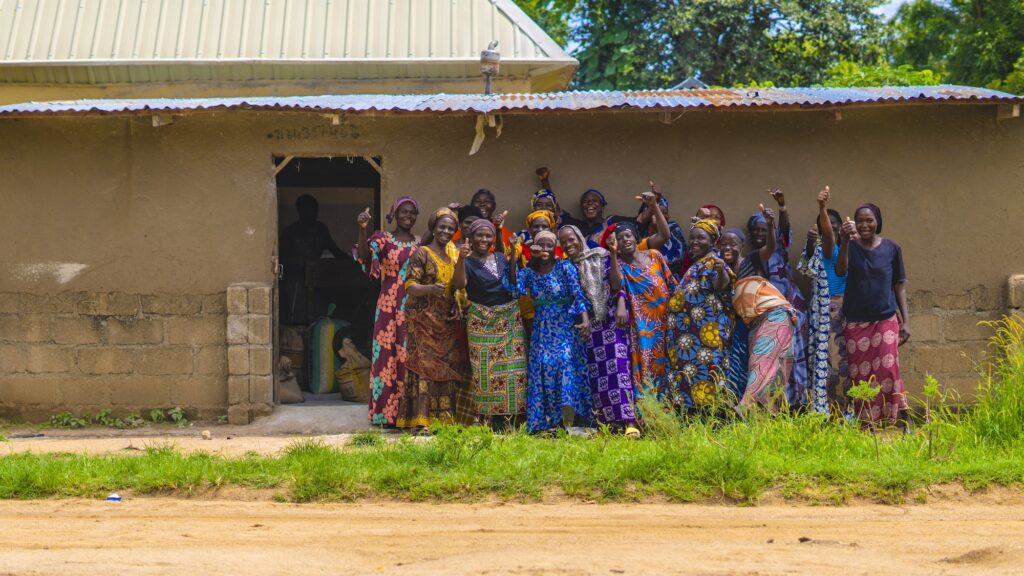
Group of Women Farmers, Nuru Nigeria, 2023
By focusing on increased resilience, Nuru Nigeria ensures farmers can handle future crises and contribute to the resilience and development of their communities. Nuru Nigeria’s work continues to remain vital in northeast Nigeria, as it builds the lasting sustainability of farmer-owned and farmer-led agribusinesses. Sustainable agribusinesses are equipped to support their farmer members, allowing Nuru Nigeria to expand into new Local Government Areas (LGAs) through local partnerships that offer continued support to farmers through agribusiness development services, livelihood diversification opportunities, and women-focused activities.
At a regional level, these efforts can lead to significant improvements in agricultural productivity, economic stability, and overall well-being in northeast Nigeria and beyond. As local communities become more resilient and self-sufficient, they can serve as models for neighboring regions, creating a ripple effect that promotes sustainable agricultural practices and economic growth throughout the area.
Continued Resilience-Building
Nuru envisions a world without cycles of unjust poverty, where resilience and hope are cultivated in the most marginalized communities. The Nuru Collective works in the places disproportionately impacted by conflict, climate change, and other growing instabilities. Nuru Nigeria’s tangible resilience-building impact over the last five years demonstrates the value of the Nuru model in conflict-impacted and marginalized places. By championing local leaders like Amy Gaman, Nuru is equipped to address the critical local needs of farmers and their agribusinesses while also capitalizing on its 16 years of lessons learned in community-driven development in Kenya, Ethiopia, Burkina Faso, and Ghana. By sharing best practices and collaborating with other NGOs, government entities, and multilateral donors, Nuru can contribute to global efforts in addressing poverty, improving food security, and fostering resilient and prosperous communities, illustrating a scalable model for lasting change in vulnerable regions worldwide.


